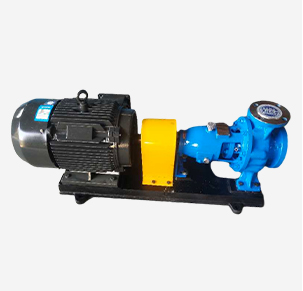Ukrainian
- Afrikaans
- Albanian
- Amharic
- Arabic
- Armenian
- Azerbaijani
- Basque
- Belarusian
- Bengali
- Bosnian
- Bulgarian
- Catalan
- Cebuano
- Corsican
- Croatian
- Czech
- Danish
- Dutch
- English
- Esperanto
- Estonian
- Finnish
- French
- Frisian
- Galician
- Georgian
- German
- Greek
- Gujarati
- Haitian Creole
- hausa
- hawaiian
- Hebrew
- Hindi
- Miao
- Hungarian
- Icelandic
- igbo
- Indonesian
- irish
- Italian
- Japanese
- Javanese
- Kannada
- kazakh
- Khmer
- Rwandese
- Korean
- Kurdish
- Kyrgyz
- Lao
- Latin
- Latvian
- Lithuanian
- Luxembourgish
- Macedonian
- Malgashi
- Malay
- Malayalam
- Maltese
- Maori
- Marathi
- Mongolian
- Myanmar
- Nepali
- Norwegian
- Norwegian
- Occitan
- Pashto
- Persian
- Polish
- Portuguese
- Punjabi
- Romanian
- Russian
- Samoan
- Scottish Gaelic
- Serbian
- Sesotho
- Shona
- Sindhi
- Sinhala
- Slovak
- Slovenian
- Somali
- Spanish
- Sundanese
- Swahili
- Swedish
- Tagalog
- Tajik
- Tamil
- Tatar
- Telugu
- Thai
- Turkish
- Turkmen
- Ukrainian
- Urdu
- Uighur
- Uzbek
- Vietnamese
- Welsh
- Bantu
- Yiddish
- Yoruba
- Zulu
Telephone: +86 13120555503
Email: frank@cypump.com
Гру . 10, 2024 01:33 Back to list
Efficiency and Applications of Chemical Water Pumps in Industrial Use
The Importance of Chemical Water Pumps in Industrial Applications
Chemical water pumps play a crucial role in various industrial applications, serving as the backbone for many manufacturing processes that require the movement of corrosive or hazardous fluids. These specialized pumps are designed to handle a wide range of chemicals, ensuring safe and efficient transfer while minimizing the risk of leaks or spills. In this article, we will explore the essential features, types, applications, and benefits of chemical water pumps, highlighting their significance in modern industries.
Understanding Chemical Water Pumps
Chemical water pumps are engineered to transport various types of liquids—ranging from water blended with chemicals to highly corrosive substances. Their construction typically features materials resistant to corrosion, such as stainless steel, titanium, and various thermoplastic polymers. These materials ensure durability and longevity, crucial for maintaining performance in challenging environments.
Chemically resistant seals, gaskets, and linings are used to prevent leaks and ensure the integrity of the pump during operation. Moreover, these pumps are designed to accommodate the specific viscosity and flow rates required by different chemical solutions, making them versatile tools in industrial processes.
Types of Chemical Water Pumps
There are several types of chemical water pumps available, each suited to different applications and fluid characteristics
. The most common types include1. Centrifugal Pumps These pumps use rotational energy to move fluids and are ideal for high-flow applications. They are commonly used in water treatment plants, chemical processing, and wastewater management.
2. Diaphragm Pumps Known for their ability to handle thick liquids and slurries, diaphragm pumps utilize a flexible diaphragm to create a vacuum that moves fluid. They are particularly effective for metering and dosing applications.
chemical water pump

3. Peristaltic Pumps These pumps operate by compressing and relaxing flexible tubing, allowing them to pump fluids without contamination. They are often used in laboratories and food processing industries where hygiene is paramount.
4. Gear Pumps These pumps are designed for high-pressure applications and work by using gears to create a flow. They are efficient for transferring viscous fluids and are found in chemical manufacturing and petroleum industries.
Applications of Chemical Water Pumps
Chemical water pumps find utility across various industries, including
- Chemical Processing Transporting raw materials and finished products safely between vessels and processes. - Water Treatment Moving treated water and chemicals necessary for purification. - Agriculture Irrigation systems may utilize chemical pumps to distribute fertilizers and pest control solutions. - Pharmaceutical Manufacturing Ensuring precise metering and transfer of active ingredients and solvents. - Food and Beverage Handling ingredients and cleaning compounds while maintaining strict hygiene standards.
Benefits of Chemical Water Pumps
The utilization of chemical water pumps comes with multiple benefits
- Safety Designed to handle hazardous materials, minimizing the risk of spills and exposure. - Efficiency Tailored for specific applications, these pumps provide optimal flow rates and reduce energy consumption. - Durability Constructed from robust materials that withstand corrosion and wear, ensuring longer service life.
In conclusion, chemical water pumps are indispensable in various industrial sectors, facilitating the safe and efficient movement of liquids. Their specialized designs ensure that they meet the demands of modern manufacturing while prioritizing safety and operational efficiency. As industries continue to evolve, the importance of such pumps will only grow, making them a vital component in the infrastructure of chemical handling and processing.
-
Custom Drilling Mud and Slurry Pump Supplier - High Efficiency, Tailored Solutions
NewsJun.10,2025
-
Supply Vertical Submersible Sewage Pump High-Efficiency WQ/QW Pumps Supplier
NewsJun.10,2025
-
Premium Sewage Ejection System & Pumps Efficient Waste Removal
NewsJun.09,2025
-
Premium Wholesale Slurry Pump Impellers Durable & Efficient Slurry Handling
NewsJun.09,2025
-
Top Sewage Pump Companies Durable Industrial Solutions for Efficiency
NewsJun.09,2025
-
Heavy Duty Slurry Pumps - OEM High Performance & Bulk Wholesale
NewsJun.09,2025










